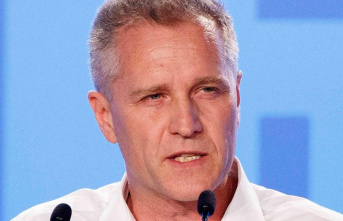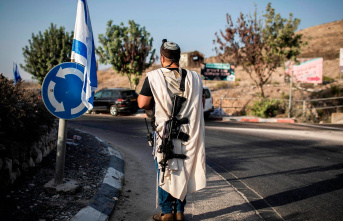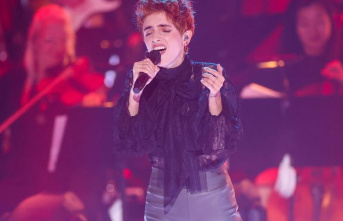China and Germany have warned of a nuclear escalation in the Ukraine war. "President Xi and I agree: nuclear threats are irresponsible and extremely dangerous," said Chancellor Olaf Scholz (SPD) on Friday after talks in Beijing.
At their previous meeting, head of state and party leader Xi Jinping said: "The use of nuclear weapons or the threat to do so must be rejected." The international community should work to ensure "that nuclear weapons cannot be used and that nuclear wars cannot be fought".
The parties concerned must exercise restraint and create conditions for negotiations to resume, Xi Jinping said, according to the Foreign Ministry. The world community should make every effort conducive to a peaceful solution.
Xi expresses concern over Russia's war of aggression
Xi Jinping still did not criticize his strategic partner Russia because of its invasion of Ukraine. But both Xi Jinping and Prime Minister Li Keqiang on Friday expressed their concerns about the conflict, in which China has backed Russian President Vladimir Putin, more clearly than at any time since the war of aggression began.
China is hoping for an "early end" to the war with Germany, the prime minister said. "We cannot afford any further escalation." Scholz appeared in front of the press together with Li Keqiang. However, questions from journalists were not allowed, which was still possible during visits by his predecessor Angela Merkel.
Scholz made China responsible as a member of the UN Security Council. As such, the People's Republic is also responsible for peace in the world: "I told President Xi that it is important for China to exert its influence on Russia." Before his departure, Scholz said that the visit would take place at exactly the time "when it is important to get things moving in deadlocked structures".
The Chancellor's inaugural visit to Beijing was overshadowed by strict corona measures, as China is still pursuing a strict zero-Covid strategy. Scholz and his delegation with a small group of business representatives had to be tested and were only allowed to move in a hermetically sealed "bubble". Xi Jinping greeted the Chancellor without a mask, but not with a handshake. An overnight stay was avoided, so that the eleven-hour visit was shorter than any previous Chancellor's trip.
Scholz' visit to criticism
"It's good and right that I'm here in Beijing today," Scholz began his review of the controversial trip. It was criticized that the Chancellor was the first Western head of government to pay his respects to the head of state and party leader Xi at the party congress almost two weeks ago, immediately after he had expanded his power and was re-elected. China has also been criticized for human rights violations, saber-rattling against Taiwan and its more research-based foreign policy approach.
The Chancellor defended his trip. "The Russian invasion of Ukraine brought war back to Europe." In times of crisis, discussions are even more important. Scholz warned the Chinese leadership against military intervention in Taiwan. Admittedly, Germany follows a "one China policy". But that also means that any changes to Taiwan's status quo should be "only peaceful and by mutual consent."
Tensions had recently intensified. At the party conference, Xi Jinping again threatened to take the island's democratic republic militarily if the Taiwanese resisted peaceful "unification". The communist leadership regards the island as part of the People's Republic. Taiwan, on the other hand, has a population of 23 million and has long considered itself independent.
Scholz reminds of respect for human rights
The Chancellor also underlined that human rights are "universal", which is recognized by all members of the United Nations. In his talks, he recalled the obligation to protect and implement human rights. He specifically mentioned the Xinjiang region in northwest China, where Muslim minorities are being persecuted, according to the UN Human Rights Commissioner. This is "no interference in internal affairs," the chancellor dismissed the Chinese reasoning.
As it became known from government circles after Scholz's departure from Beijing, Scholz had already spoken to Chinese human rights lawyers via a secure video line before his trip to China. A meeting in Beijing was not possible due to the strict Corona requirements. From the German point of view, encounters between the chancellor and members of Chinese civil society are always a central element of trips to China.
Despite all the differences with China, Scholz also wants to advance economic cooperation. However, he complained that economic exchange "has become more difficult for German companies". "This applies to market access, which is very open from the European side, while China is sealing off many sectors." Scholz also mentioned the protection of intellectual property. "We are also noticing that self-sufficiency efforts are being discussed more and more frequently in China, where economic exchange used to be the focus."












